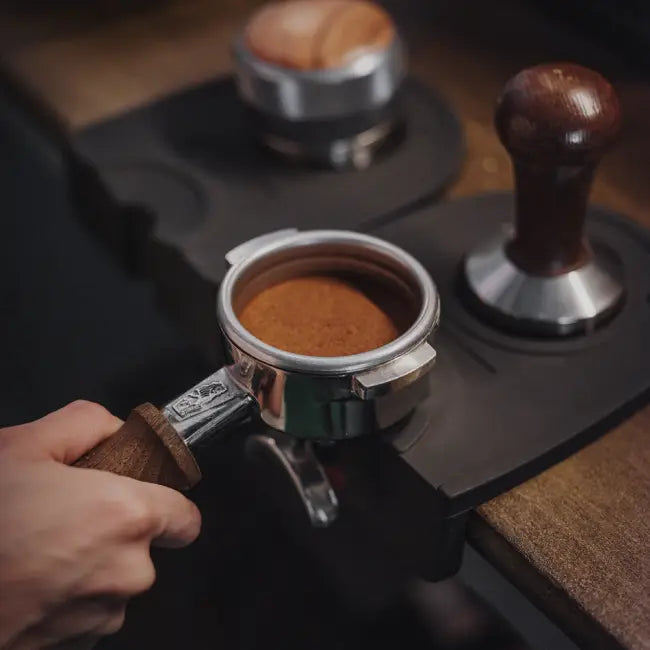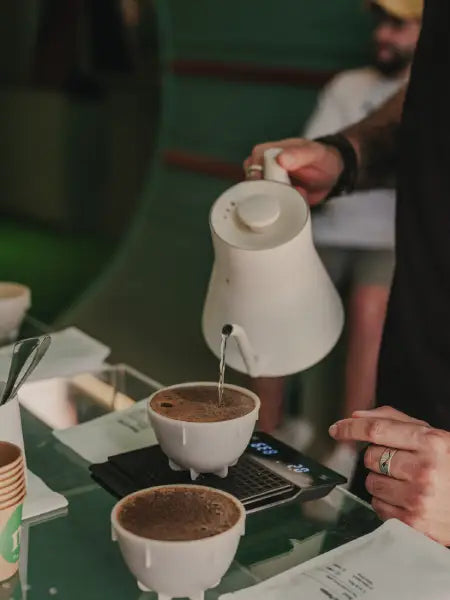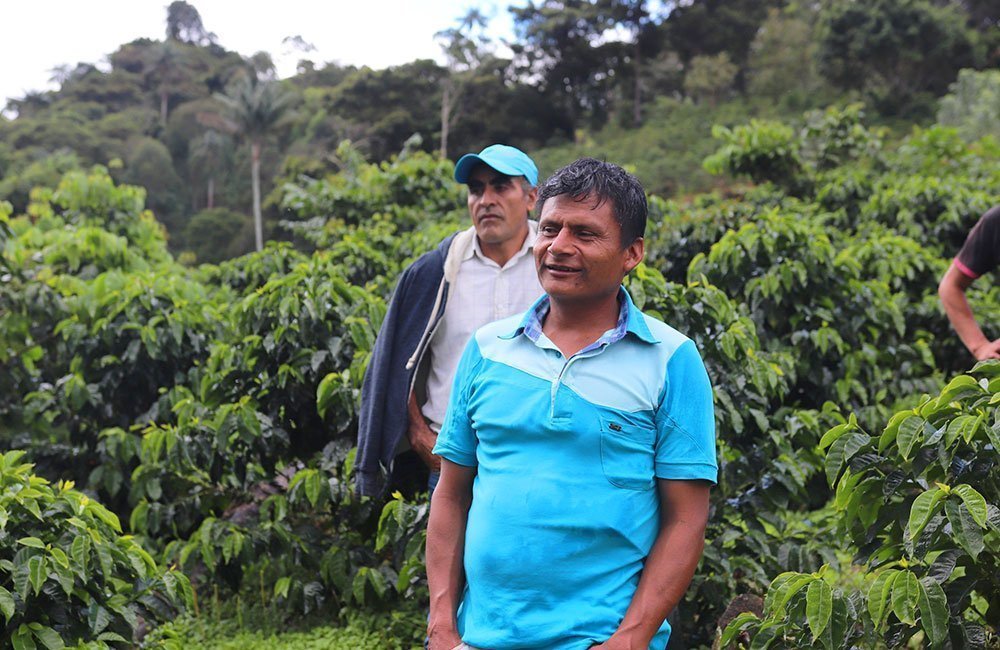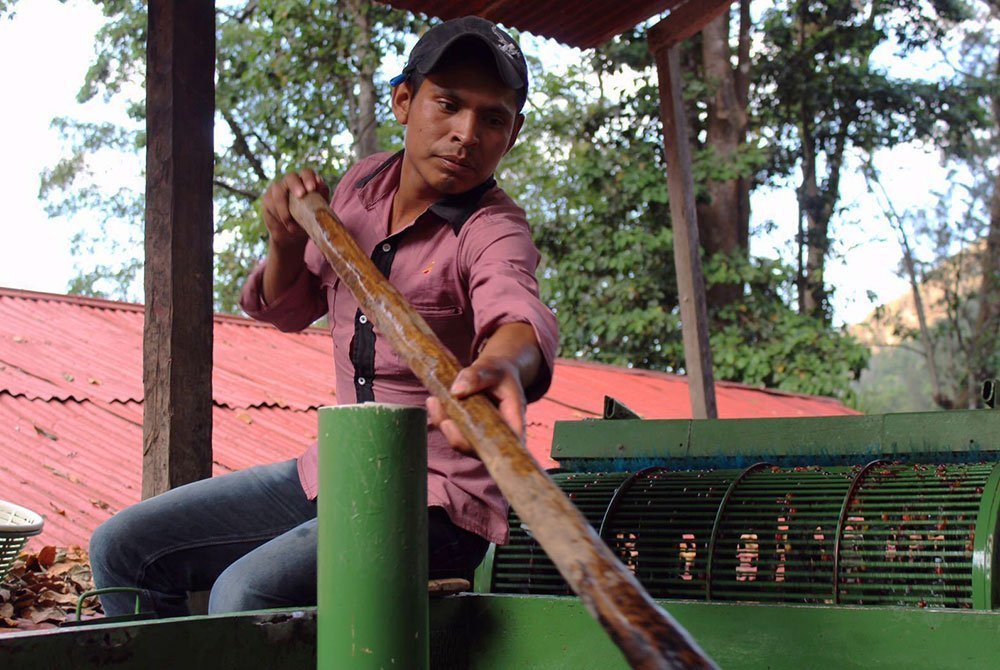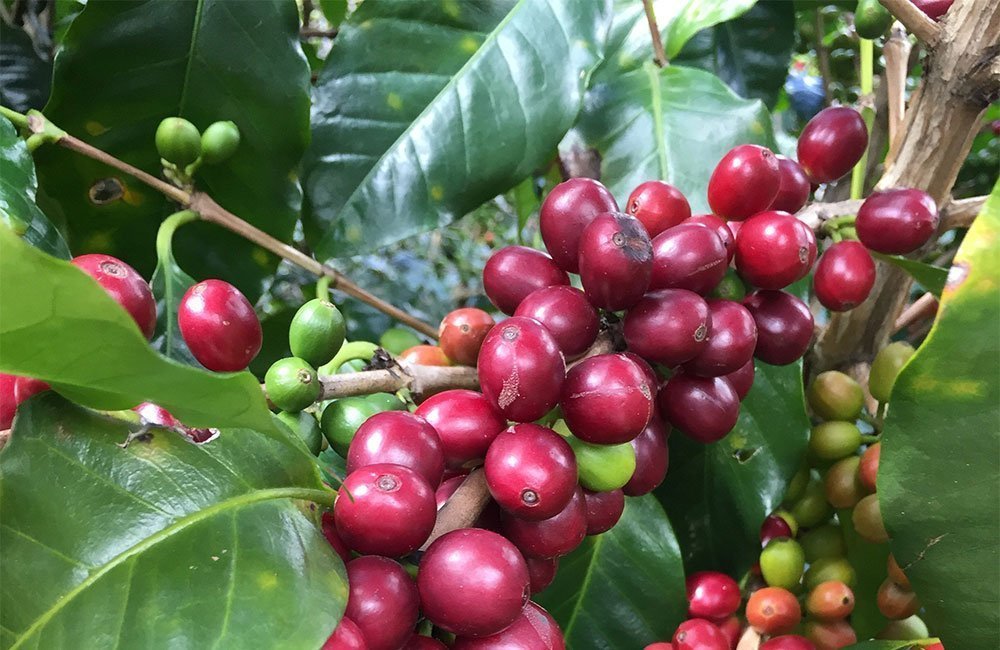Perú
Nectarina, miel, cremoso
Nuevo Trujillo |
|
1.776 msnm. |
|
Caturra |
|
Lavado |
|
Marcial Olivera Díaz |

Café de Perú de precio justo de la variedad Caturra
Marcial Olivera Díaz es el dueño de una pequeña finca de 3 hectáreas en el pueblo Nuevo Trujillo de San José de Lourdes.
En la finca se cultiva principalmente Caturra y Bourbon. Este lote específico ha sido fermentado en seco y secado en un patio cubierto de lona.
San José de Lourdes tiene un clima muy distinto en comparación a otros distritos en Jaén y San Ignacio. Es bastante más frío y tiene mayor intensidad de lluvias, lo cual aporta un perfil único en taza con muchos cítricos y un curioso cuerpo mantecoso.
A pesar de que hay muchísimo potencial para producir cafés de alta calidad en San José, la zona está muy aislada y lejos de la ciudad de Jaén, como resultado, muchos productores locales se ven obligados a vender sus cosechas a intermediarios por precios muy bajos.
El equipo de Falcon lleva años en la zona trabajando para mejorar las condiciones de estos productores, ayudándoles a mejorar su calidad y asegurándoles un precio justo por sus cosechas, mejorando el nivel de vida de los productores y la calidad del café.
En Ineffable Coffee estamos encantados de apoyar este proyecto y esperamos ver más y mejor de esta región en un futuro.

El café de Biftu Gudina es procesado usando el método lavado. Una vez en la estación de lavado, los frutos son clasificados a mano y se descartan los frutos inmaduros o excesivamente maduros antes de pasarlos por la máquina despulpadora ‘eco-pulper’ Penagos (esta máquina ayuda a reducir el uso de agua excesivo). A continuación, los granos se dejan en remojo durante unas 8 horas. El tratamiento de aguas residuales de la cooperativa se basa en una forma natural de filtración a través de una parcela de pasto vetiver antes de pasar por los pozos y finalmente a la tierra. A continuación, los granos se secan al sol durante 10 a 14 días en camas africanas elevadas y se vuelven a clasificar cuidadosamente a mano.
Proyecto en Perú (Escrito por Falcon Coffees)
Hemos estado trabajando en el norte de Perú durante varios años, comprando café de especialidad de cooperativas y asociaciones con las que hemos establecido relaciones duraderas.
Esta es la forma convencional de comercio en Perú y les da a los productores asociados con estos grupos cierta estabilidad.
Si bien la calidad en cosechas de los últimos años ha sido buena, nos ha costado mucho tener el impacto e influencia en la calidad y cadena de suministro que nos gustaría.
Aún más importante, es el hecho de que el premium que pagamos por los cafés en rara ocasión llega a manos de los productores.
Por estas razones decidimos que en Perú, como en otros orígenes, necesitábamos cambiar la forma de comprar café y trabajar directamente con los productores para poder controlar y mejorar en calidad y tener trazabilidad financiera total.
Para hacer esto, abrimos un almacén en Jaén y comenzamos a comprar café en pergamino directamente de los productores.
La región de Cajamarca tiene un gran potencial para producir cafés de calidad, con condiciones de cultivo ideales y buenas variedades de café, pero la calidad a menudo se pierde en la recolección, el proceso y el secado, con productores que carecen de infraestructura y conocimiento.
Los productores más vulnerables son aquellos que no están asociados, que no son miembros de una cooperativa, asociación u organización, y representan el 75% de los productores en el norte de Perú.
Estos productores no tienen acceso a formación, materia prima de calidad o certificaciones, y sus ingresos dependen totalmente del precio de mercado.

A menudo, intermediarios locales, un comprador que vive en la misma zona, vendrá a la finca o la casa de los productores y comprará todo su café, dinero en efectivo y luego lo venderá, en algunos casos directamente a un exportador o, más a menudo, a otros comerciantes e intermediarios.
Esto hace que al productor se le pague muy poco por su café y se pierda mucho café de calidad.
Nuestro equipo identificó productores y grupos de productores en Jaén y San Ignacio, los cuales trajeron su pergamino a nuestro almacén en Jaén, donde se pesó, y se tomó una muestra de cada lote.
Luego analizamos la muestra de café verde, y calculamos el rendimiento antes de tostarla, catarla y puntuarla.
El precio lo determinan los resultados de la cata y los productores reciben el pago al completo el mismo día, con primas muy por encima del precio de mercado, en la mayoría de los casos el doble.
Contamos con más de 300 agricultores registrados, todos los cuales recibirán formación en prácticas de cultivo, recolección, procesado y secado por nuestro agrónomo, Auber Terrones Rojas.
Este cambio en la práctica de comercio nos permitirá forjar relaciones a largo plazo directamente con los productores, mejorar la calidad del café y aumentar los ingresos de los hogares de los productores gracias al premium recibido por sus cafés.
Nuestra intención es proporcionar trazabilidad y transparencia total en todos los cafés relacionados con este proyecto.

